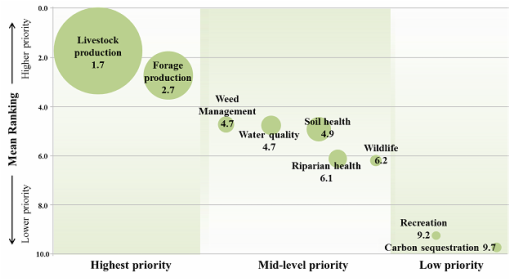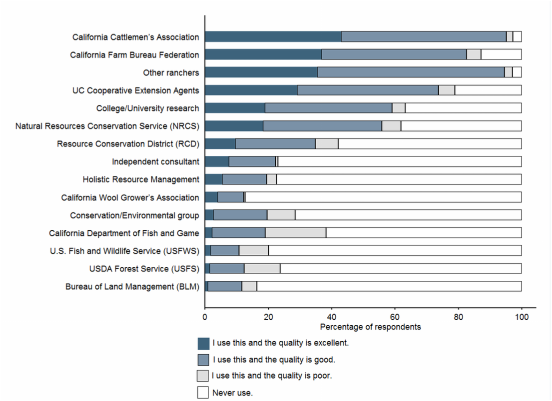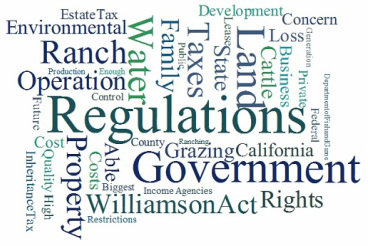Rangeland Decision-Making
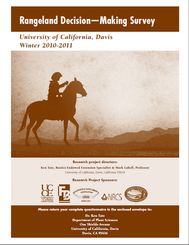 Worldwide, rangelands are our most expansive and diverse land resources and provide a multitude of ecosystem goods and services to humanity. In California, rangelands cover approximately 60% of the state (23.1 million hectares), and are often at the nexus of wildland, agricultural, and urban landscapes. These expansive working landscapes support a broad range of ecosystem services—including food and forage production, water resource protection, biodiversity, and wildlife habitat. The long-term sustainability of these lands, and the services they provide, is of major importance to an increasing diversity of rangeland stakeholders.
Worldwide, rangelands are our most expansive and diverse land resources and provide a multitude of ecosystem goods and services to humanity. In California, rangelands cover approximately 60% of the state (23.1 million hectares), and are often at the nexus of wildland, agricultural, and urban landscapes. These expansive working landscapes support a broad range of ecosystem services—including food and forage production, water resource protection, biodiversity, and wildlife habitat. The long-term sustainability of these lands, and the services they provide, is of major importance to an increasing diversity of rangeland stakeholders.
Ranchers and land managers hold unique expertise on the factors determining success of goal setting, decision-making, and adaptive management strategies within within these complex social-ecological systems. We conducted a mail survey of ranchers across California to 1) determine social-cultural-economic-institutional factors driving grazing management decisions and goal setting; 2) understand how ranchers and land managers receive, assess, and use information resources; and 3) determine rancher perspectives on adaptive grazing management.
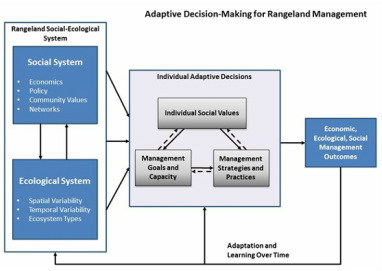
Following Dillman’s Tailored Design Method (Dillman 2007), we used a mult-contact approach to develop awareness and enhance legitimacy of the survey. We received over 500 eligible surveys for analysis, resulting in a 33% response rate (American Association of Public Opinion Research, Response Rate 4). We examined survey results within the context of an integrative framework for adaptive decision-making (Lubell et al. 2013), which emphasizes the importance of both social and ecological components in the long-term sustainability of ranching operations.
Results Highlights
Ecosystem Service Goals, Management Practice, and Information Networks
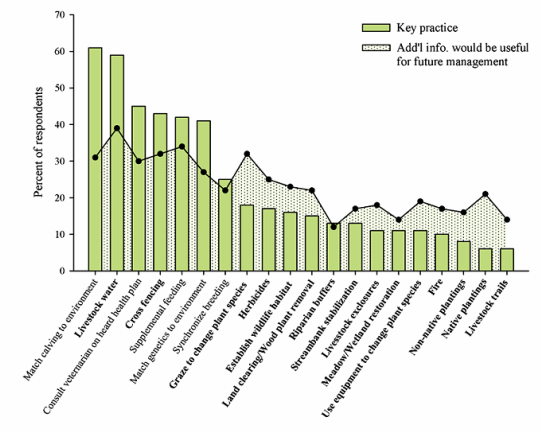 Percentage of survey respondents (n ranged from 412-461) identifying key practices (bars), and percentage of respondents (n=482) identifying important information needs (area curve). Nearly 60% (n=476) of respondents reported they currently participate or plan to participate in USDA-NRCS programs supporting such practices.
Percentage of survey respondents (n ranged from 412-461) identifying key practices (bars), and percentage of respondents (n=482) identifying important information needs (area curve). Nearly 60% (n=476) of respondents reported they currently participate or plan to participate in USDA-NRCS programs supporting such practices.
Rancher Concerns for Long-Term Sustainability
Word cloud based on rancher responses to mail survey question, “What is your biggest concern for the future of your operation?” Font size is proportional to word frequency across all responses.
Policy and outreach strategies to enhance sustainability of working rangelands should maintain extension and education on core agricultural production practices highly valued by ranchers, while expanding knowledge and technology transfer on conservation goals and practices. Identifying opportunities to integrate conservation information into agricultural extension programs will increase outreach effectiveness, providing opportunities to reach a broader stakeholder audience. Effective education and outreach strategies should also work within local social networks, connecting to recognized opinion leaders and “boundary spanners”—individuals who can help develop trust-based relationships among stakeholders and aid translation between diverse communities to find common goals.
Related Publications
Lubell, M., B. Cutts, L.M. Roche, J.D. Derner, M. Hamilton, E. Kachergis, K.W. Tate. 2013. Conservation program participation and adaptive rangeland decision-making. Rangeland Ecology and Management 66:609-620.
Roche, L.M., J.D. Derner, B.B. Cutts, M.N. Lubell, K.W. Tate. 2015. On-ranch grazing strategies: context for the rotational grazing dilemma. Rangeland Ecology and Management 68:248-256.
Roche, L.M., T.K. Schohr, J.D. Derner, M.N. Lubell, B.B. Cutts, E. Kachergis, V.T. Eviner, K.W. Tate. 2015. Sustaining working rangelands: insights from rancher decision-making. Rangeland Ecology and Management 68:383-389.
Macon, D.K., S. Barry, T. Becchetti, J.S. Davy, M.P. Doran, J.A. Finzel, George, J.M. Harper, L. Huntsinger, R.S. Ingram, D.E. Lancaster, R.E. Larsen, D.J. Lewis, D.F. Lile, N.K. McDougald, F.E. Mashiri, G. Nader, S.R. Oneto, J.W. Stackhouse, and L.M. Roche. 2016. Coping with drought on California rangelands. Rangelands 38: 222–228.
Roche, L.M. 2016. Adaptive rangeland decision-making and coping with drought. Sustainability 8: 1334.
Woodmansee, G.W. and Roche, L.M. 2018. Infographic: How well do you know California ranchers?
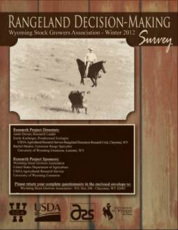
Our Wyoming collaborators conducted a parallel survey effort in Wyoming. For more information, click here.
Kachergis, K., J.D. Derner, L.M. Roche, K.W. Tate, V. Eviner, M. Lubell, B. Cutts. 2014. Increasing flexibility in rangeland management during drought. Ecosphere 5: art77.
Kachergis, E., J. Derner, L.M. Roche, K.W. Tate, M. Lubell, R. Mealor, J. Magagna. 2013. Characterizing Wyoming ranching operations: natural resource goals, management practices and information sources. Natural Resources 4:45-54.
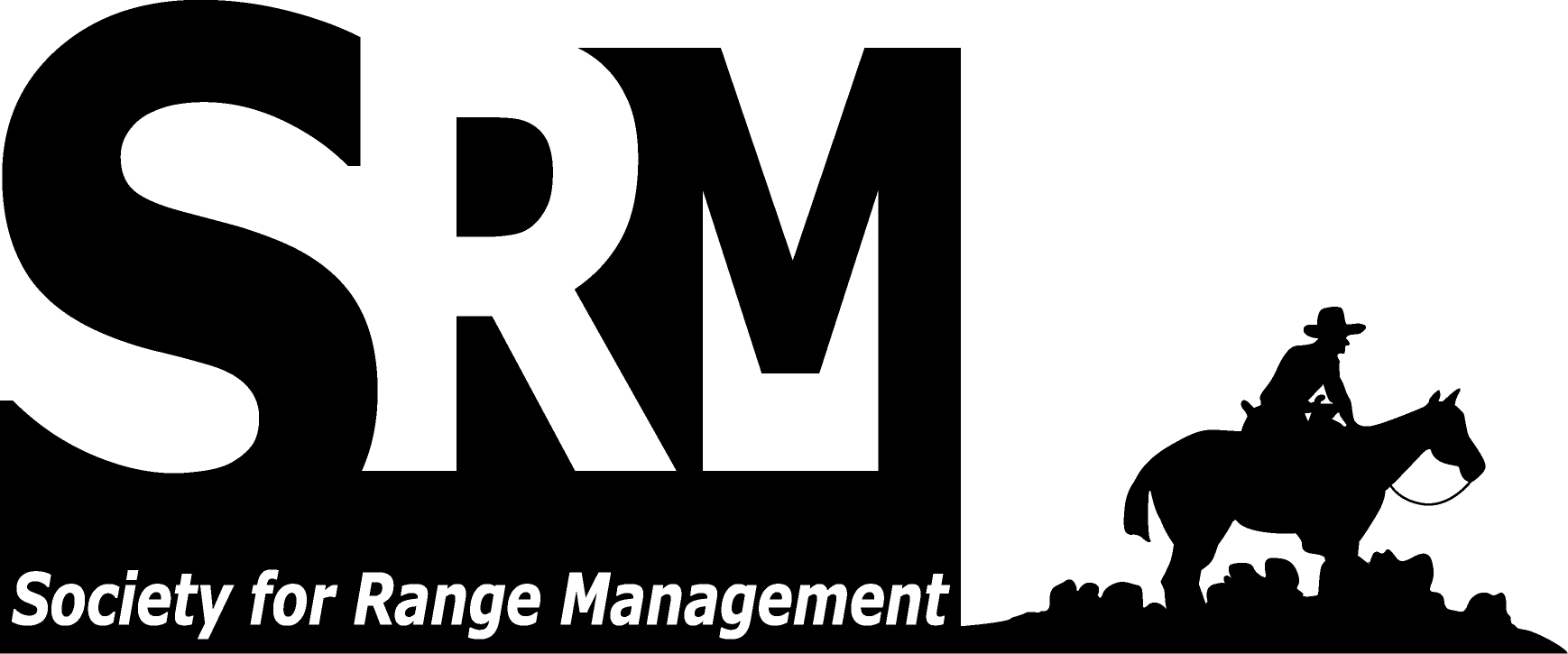
Adaptive Management of Rangelands: Science, Practice, and Partnership
Special Symposium of the Society for Range Management 66th International Meeting - January 2013
Research funded by USDA-NIFA, Rangeland Research Program

